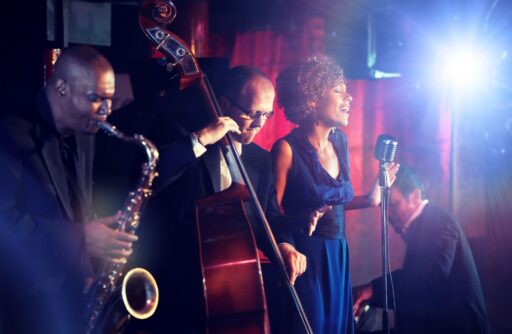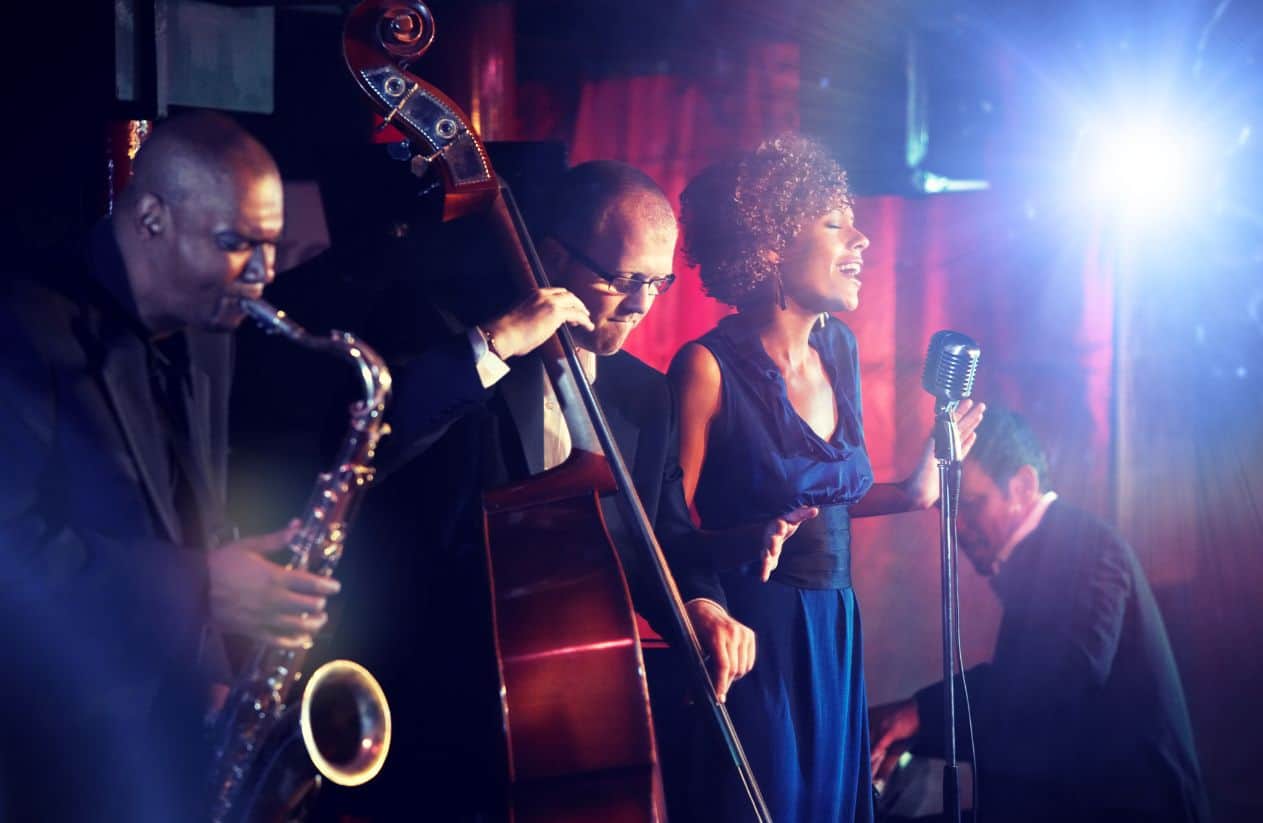Planning a corporate gala or private party? The right music can elevate your event from memorable to truly magical. But if you’re looking to hire musicians for a corporate gala, the process can feel like navigating a complex symphony.
This comprehensive guide is your backstage pass, demystifying everything from defining your event’s sonic identity to mastering the booking process and orchestrating a seamless performance. We’ll equip you with the knowledge and tools to craft the perfect musical experience for your guests.
Whether you envision a sophisticated jazz ensemble or a high-energy dance band, this guide will help you hire musicians for a corporate gala and transform your event into an unforgettable celebration.
Beyond the Genre: Defining Your Event’s Sonic Identity

Choosing the right music for your corporate gala or private party goes far beyond simply selecting a genre. It’s about crafting a specific atmosphere, a feeling that resonates with your guests and perfectly complements the occasion.
This section helps you define your event’s sonic identity, ensuring the music enhances the overall experience.
The “Vibe” Factor: Think beyond “jazz” or “pop.” Consider the feeling you want to evoke. Is it a sophisticated soiree where guests mingle and network? Picture a smooth jazz quartet creating an air of elegance, or a classical guitarist playing soft melodies. Perhaps you’re aiming for a high-energy celebration where everyone hits the dance floor?
A dynamic cover band playing popular hits or a DJ spinning infectious beats would be ideal. For a more intimate gathering, a soulful singer-songwriter or a mellow acoustic duo can create a warm and inviting ambiance.
Use evocative language to describe the desired mood: “romantic,” “upbeat,” “relaxed,” “festive,” “inspiring.” This will help you communicate your vision to potential musicians.
Target Audience & Musical Preferences: While the overall event vibe is paramount, considering your guests’ musical tastes is also important. If possible, try to gauge their preferences beforehand. A simple pre-event survey or a quick poll on your event website can offer valuable insights.
However, remember that you’re unlikely to please everyone. The key is to strike a balance between the desired atmosphere and the general tastes of your audience.
If you know your guests lean towards a particular style (e.g., country, Latin, 80s), try to incorporate elements of that into the music selection, even if it’s not the dominant genre.
Thematic Considerations: If your event has a specific theme, the music should be a natural extension of that. A “Roaring Twenties” gala wouldn’t be complete without the sounds of swing and jazz.
Imagine a tropical-themed party with the rhythms of reggae, salsa, or calypso filling the air. A masquerade ball calls for classical music or perhaps some dramatic opera. Think of the music as another element of your event’s decor, enhancing the overall immersive experience.
Don’t be afraid to get creative and explore musical styles that perfectly capture the essence of your theme.
Budget-Driven Choices: Let’s be realistic: budget plays a significant role in your musical choices. A solo pianist is generally more affordable than a 10-piece band. A DJ might be a cost-effective option for a high-energy dance party.
Be upfront about your budget with potential musicians. This will save everyone time and ensure you’re looking at options that are actually feasible.
Don’t be afraid to negotiate, but also understand that talented musicians deserve to be compensated fairly for their time and expertise.
Prioritize what’s most important to you – the size of the ensemble, the experience level of the musicians, or a particular genre – and allocate your budget accordingly.
Also check our article “A Guide to Hiring Guitarists for Intimate Events and Private Gatherings”
Unearthing Hidden Gems: Finding Musicians Who Truly Fit
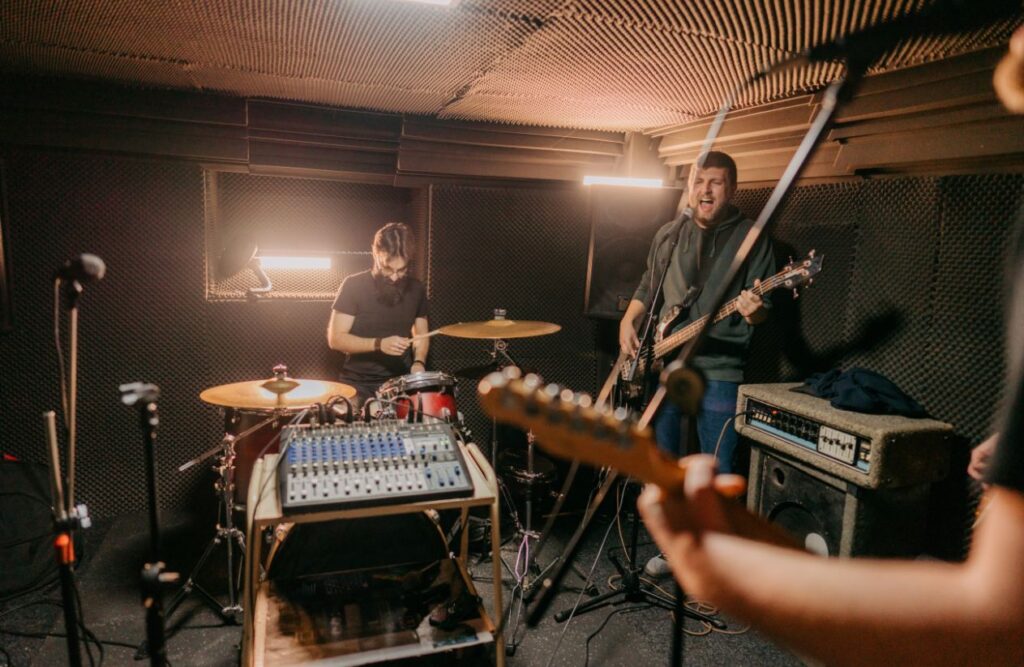
Finding the perfect musicians for your corporate gala isn’t just about browsing generic gig platforms. It requires a bit of digging to uncover those hidden gems that will truly elevate your event.
This section explores some less conventional, but highly effective, ways to find musicians who are the perfect fit for your vision.
Beyond the Usual Suspects: While online platforms can be a starting point, don’t limit your search to them. Explore other avenues to discover talented musicians. Local music schools and universities often have students or alumni eager to perform.
Open mic nights and local music festivals are great places to discover up-and-coming artists.
Specialized entertainment agencies can be valuable resources, as they often represent a curated roster of high-quality musicians. Don’t overlook the power of networking. Talk to friends, colleagues, and other event planners for recommendations.
The Art of the Demo Review: A musician’s demo is your first impression of their talent and style. But don’t just listen passively.
Critically evaluate the recording quality – is it professional and clear? Assess the performance energy – does it capture the excitement and emotion of a live performance? Pay close attention to repertoire diversity – do they offer a range of songs that would appeal to your guests? Beyond the music itself, consider the presentation of the demo. Is it well-organized and easy to navigate?
Does it include information about the musicians’ experience and background? Specific questions to ask yourself while reviewing a demo include: “Does the music match the vibe I’m aiming for?”, “Are the vocals clear and strong (if applicable)?”, “Does the instrumentation sound balanced and professional?”, and “Do they demonstrate versatility across different styles?”.
The Power of the “Audition Call”: Even if a live audition isn’t feasible, a brief phone or video call can be incredibly revealing. It’s an opportunity to gauge the musician’s professionalism, communication skills, and personality.
Are they responsive and easy to talk to? Do they seem genuinely enthusiastic about your event? Do they listen carefully to your needs and offer thoughtful suggestions?
This call can also help you clarify any questions you have about their experience, repertoire, or technical requirements.
Checking References (and Why It Matters): Checking references is crucial for ensuring you’re hiring musicians who are not only talented but also reliable and professional.
Don’t hesitate to ask for contact information from past clients. Prepare a list of specific questions to ask, such as: “Were you satisfied with the musicians’ performance?”, “Did they arrive on time and prepared?”, “Were they easy to work with?”, “Did they handle any unexpected issues effectively?”, and “Would you hire them again?”.
These firsthand accounts can provide valuable insights and help you make an informed decision when you hire musicians for a corporate gala.
Mastering the Booking Process
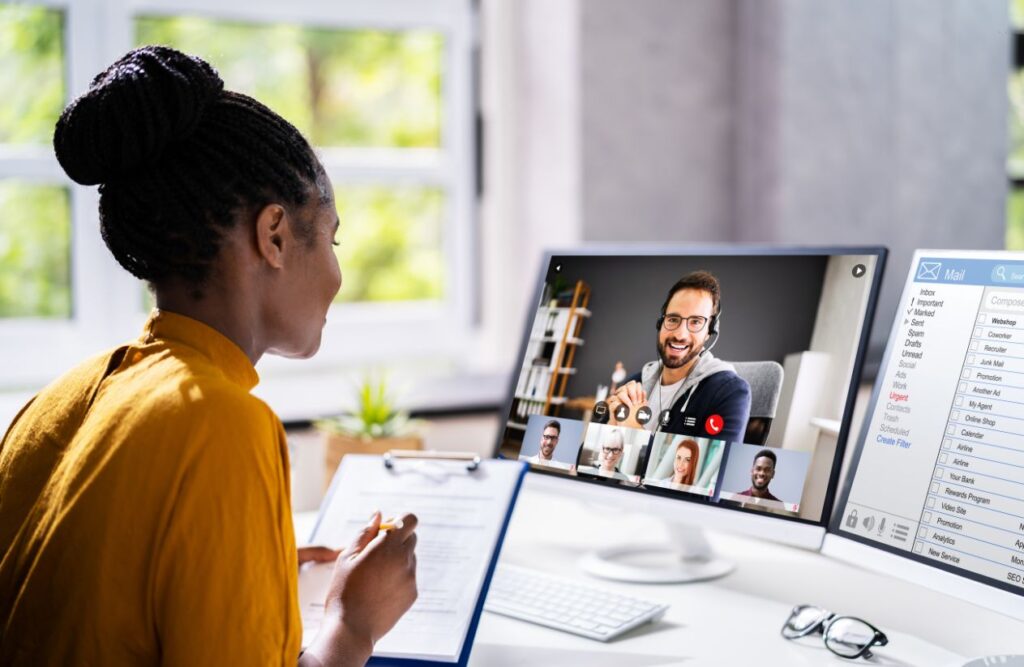
Once you’ve found the perfect musicians, the next step is to solidify the booking process. This involves careful contract negotiation, understanding technical riders, and planning for potential hiccups.
This section dives into the details that can make or break your event’s musical success.
Contractual Must-Haves (and Dealbreakers): A solid contract is essential for protecting both you and the musicians. Beyond the basic details (date, time, location, payment), consider including specific clauses related to:
- Breaks: Clearly define the length and frequency of breaks for the musicians.
- Overtime: Specify the hourly rate for any performance time beyond the agreed-upon duration.
- Attire: Outline the dress code for the musicians to ensure it aligns with the event’s formality.
- Sound Equipment: Specify who is responsible for providing sound equipment (e.g., microphones, speakers, soundboard) and clarify any technical specifications.
- Intellectual Property: If the musicians will be performing original music, address any copyright or licensing issues. If you intend to record the performance, clarify ownership and usage rights.
- Cancellation Policies: Outline the terms and conditions for cancellation by either party, including any penalties or refunds.
The Rider Demystified: A technical rider is a document that outlines the technical requirements for the musicians’ performance. It often includes:
- Stage Plot: A diagram showing the desired layout of the stage, including the placement of equipment and musicians.
- Power Requirements: Specifications for electrical outlets, voltage, and power supply.
- Sound Equipment: Details about the type and quality of sound equipment needed.
- Lighting: Requirements for stage lighting, if applicable.
- Hospitality Needs: Information about dressing rooms, refreshments, and other amenities for the musicians.
A sample rider checklist might include: “Number of microphones,” “Type of speakers,” “Power outlet requirements,” “Stage size,” “Dressing room access,” and “Water and snacks provided.”
Contingency Planning: The “What If” Scenarios: Murphy’s Law dictates that anything that can go wrong, will go wrong. Prepare for potential problems by creating contingency plans.
What if a musician gets sick? Have a backup musician in mind. What if the sound equipment fails? Have a backup plan for acquiring replacement equipment. What if there’s inclement weather? Have a plan for moving the performance indoors or rescheduling.
For example, if you hire musicians for a corporate gala and an outdoor venue is rained out, having an indoor alternative is crucial.
Payment Schedules and Milestones: Structure your payment schedule to protect your interests while also ensuring the musicians are fairly compensated. Consider tying payments to specific milestones:
- Deposit: A percentage of the total fee paid upon booking confirmation.
- Mid-Performance Payment: A portion of the fee paid after the first half of the performance.
- Final Payment: The remaining balance paid upon completion of the performance.
Clearly outline the payment schedule in the contract to avoid any misunderstandings.
Orchestrating the Magic: Event Day Coordination
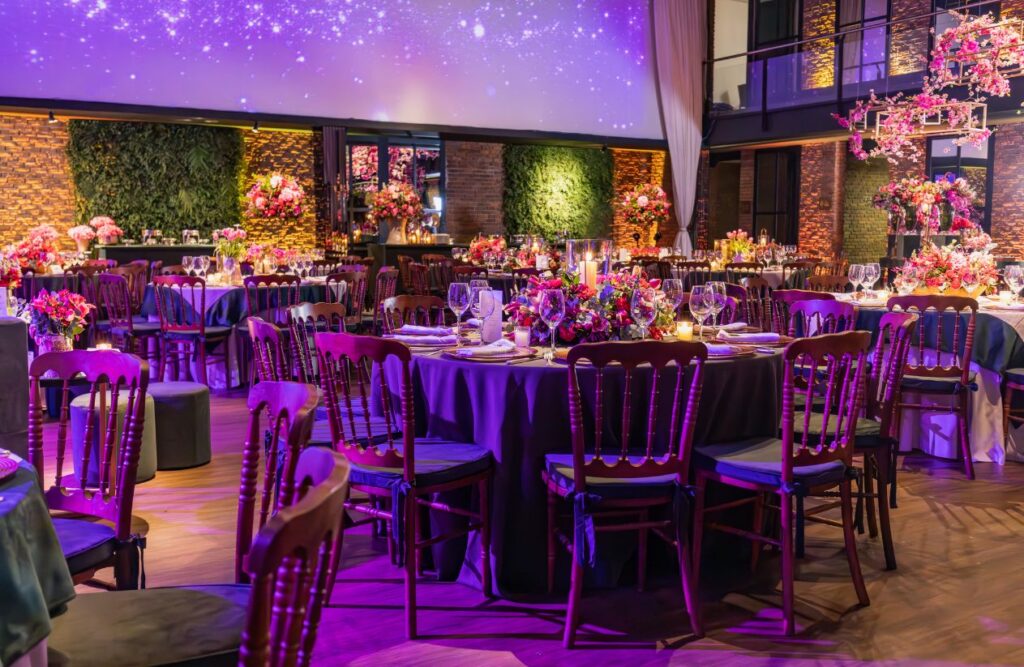
The big day has arrived! All the planning and preparation come together on the day of your event. Effective coordination is key to ensuring a smooth and successful musical performance.
This section provides tips for managing the on-site logistics and handling any unexpected challenges that may arise.
Pre-Event Communication with Musicians: Maintain open communication with the musicians leading up to the event. A detailed timeline and checklist can be helpful:
- Two Weeks Before: Confirm all details (time, location, setlist, special requests). Share any updated event schedules or changes in logistics.
- One Week Before: Reconfirm arrival times and any specific instructions for accessing the venue. Discuss any last-minute questions or concerns.
- Day Before: Touch base with the musicians to confirm they are still on schedule and address any final details.
- Day Of: Communicate any on-site changes or updates. Designate a point person for the musicians to contact throughout the event.
On-Site Logistics and Stage Management: Careful attention to on-site logistics is crucial for seamless performance.
- Stage Setup: Ensure the stage is set up according to the technical rider, including proper placement of equipment, microphones, and lighting.
- Sound Check: Schedule a sound check well in advance of the event start time. This allows the musicians to adjust the sound levels and ensure everything is working correctly. Have a designated sound person available to assist.
- Vendor Coordination: Coordinate with other vendors (e.g., caterers, decorators) to ensure they are aware of the musicians’ schedule and any logistical requirements.
- Stage Management: Have someone responsible for managing the stage area during the performance, including cueing the musicians, managing lighting, and addressing any technical issues that may arise.
Handling Unexpected Issues (Gracefully): Even with the best planning, unexpected problems can occur. Here’s how to handle them gracefully:
- Technical Difficulties: If equipment fails, remain calm and work with the musicians to find a solution. Have backup equipment on hand if possible.
- Last-Minute Requests: If a guest requests a song that’s not on the setlist, be polite but firm. Explain that the musicians have a planned setlist but will consider the request for future events.
- Schedule Changes: If the event schedule changes, communicate the changes to the musicians as soon as possible and work with them to adjust their performance accordingly.
- Musician Illness: If a musician is unable to perform due to illness, have a backup musician ready to step in.
The Art of the Event Introduction: A well-crafted introduction can set the stage for a fantastic performance.
- Keep it Brief: Don’t make the introduction too long. Focus on highlighting the musicians’ talent and the type of music they will be playing.
- Build Excitement: Generate enthusiasm for the performance by mentioning any special achievements or accolades of the musicians.
- Set the Mood: Briefly describe the atmosphere or feeling you hope the music will create.
- Pronounce Names Correctly: Double-check the pronunciation of the musicians’ names to ensure you introduce them correctly.
Building Bridges: Post-Event Etiquette and Future Collaborations

The music has faded, the guests have departed, but your relationship with the musicians doesn’t have to end there. Post-event follow-up is an important part of the process, both for showing appreciation and for potentially building long-term collaborations.
Providing Thoughtful Feedback (Beyond “Great Job!”): While a simple “Great job!” is appreciated, providing more specific and constructive feedback can be even more valuable for musicians. Instead of just saying “I loved the music,” try to pinpoint specific moments you enjoyed.
For example, “I especially loved the rendition of [song title] – the energy was fantastic!” or “The transition between [song title] and [song title] was seamless and kept the dance floor packed.” If there were any areas where you think they could improve, phrase your feedback constructively.
For example, instead of saying “The vocals were a bit too loud,” you could say, “Perhaps a slightly different mix on the vocals during [song title] would have been perfect.” Be honest but kind, and focus on specific examples.
The Power of Testimonials and Reviews: Positive reviews and testimonials are incredibly valuable for musicians. They help build credibility and attract future clients. If you were happy with the musicians’ performance, take the time to write a thoughtful review on their website, social media pages, or any online platforms where they are listed.
Be specific about what you appreciated, and consider including details about your event and the overall atmosphere the music created. A genuine testimonial can go a long way in helping musicians grow their careers.
Cultivating Long-Term Relationships with Musicians: Building relationships with talented musicians can be beneficial for future events. If you found a group or individual you enjoyed working with, stay in touch.
Connect with them on social media, attend their performances, and recommend them to other event planners. Nurturing these relationships can create a network of reliable and talented musicians you can call on for future collaborations, ensuring your events always have the perfect soundtrack.
This not only streamlines your future event planning but also supports the local music community.
You can also read our article “Live Band or DJ: The Ultimate Event Music Guide”
Conclusion
From setting the perfect vibe to navigating contracts and managing on-site logistics, the process to hire musicians for a corporate gala or private party is an art form.
By following the tips and strategies outlined in this guide, you’re well-equipped to curate a musical experience that resonates with your guests and elevates your event to new heights.
Remember that careful planning, clear communication, and attention to detail are key to success when you hire musicians for a corporate gala. Don’t be afraid to explore beyond the usual channels to find hidden musical gems, and always prioritize building strong relationships with the musicians you choose.
With the right approach, you can transform your event into an unforgettable celebration, where the music perfectly complements the ambiance and creates lasting memories. So, go forth and create the perfect soundtrack for your next gala!
Since you arelooking for a musician for a corporate gala, check our list below of recommended musicians that you can book or hire for the event:
